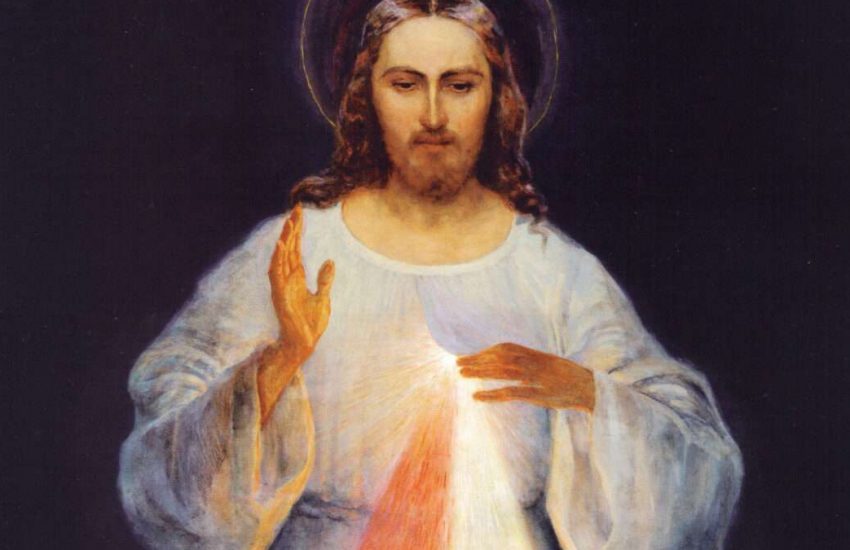Gospel For Today – 24th Sunday of Ordinary Time
TWENTY-FOURTH SUNDAY OF ORDINARY TIME (C)

What a treasure trove this Sunday's readings are! Today not only do we have Moses invoking God's mercy and faithfulness; not only do we have the example of St. Paul, once a zealous persecutor of the Church, now turned Apostle of Christ; but in the gospel reading from Luke we have the parable of the lost sheep, the parable of the woman looking for her lost coin, and the parable of the Prodigal Son. Where does one begin?
There is obviously a common thread running through these readings. One may at first be tempted to say it is repentance. St. Paul repented of his anti-Christian ways and became a great evangelist and author of most of the New Testament. The prodigal son repented and was welcomed back into the family by his father. Surely repentance is key. If there is anything we are doing, any aspect of our lives, that is keeping us separated from Christ, we need to repent of that thing and be reconciled to God.
But repentance is only half of the story. I believe there is a deeper thread to be found here. When a relationship is wounded or broken, true reconciliation requires two things. The offending party needs to repent and seek forgiveness. And the one offended needs to forgive. Only then is reconciliation possible.
What God is telling us through each one of the stories presented today is clear and simple: He forgives. He forgives readily and willingly. In fact, He is eager to forgive. He is like the shepherd who leaves the ninety-nine sheep to run off into the wilderness looking for that one who has gotten lost. He is like the father in the story of the Prodigal Son, scanning the horizon, looking for his lost child from a distance, ready to run and embrace him, clothe him with the finest robe, place a ring on his finger and prepare a feast to welcome him home. This is our Father in heaven.
It is the deepest desire of our Father to reconcile us to Himself. He sent His Son to us, to inaugurate this ministry of reconciliation. His Son established for us a Church that would endure for all time to continue this ministry of reconciliation. St. Paul says, "All this is from God, who through Christ reconciled us to Himself and gave us the ministry of reconciliation; that is, God was in Christ reconciling the world to Himself, not counting their trespasses against them, and entrusting to us the message of reconciliation. So we are ambassadors for Christ, God making His appeal through us. We beseech you on behalf of Christ, be reconciled to God" (2 Cor 5:18-20).
St. John speaks of this ministry of reconciliation being given directly to the Apostles by Christ. "Jesus said to them again, 'Peace be with you. As the Father has sent me, even so I send you.' And when He had said this, He breathed on them, and said to them, 'Receive the Holy Spirit. If you forgive the sins of any, they are forgiven; if you retain the sins of any, they are retained" (Jn 20:21-23).
This is the purpose of the Incarnation. This is the purpose of the Church and the underlying reason for all she does – to reconcile us to God. Everything the Church does, every aspect of her ministry, ultimately is in support of this one goal. The most direct and visible manifestation of this is the sacrament of Reconciliation. This sacrament goes by three different names: Confession, Penance, and Reconciliation. Each refers to a different aspect of this sacrament. "Confession" refers to our act of verbally confessing our sins. "Penance" refers to the penitential act the priest prescribes for us as reparation for our sins. But "Reconciliation" refers to the end of the sacrament, the purpose of its existence and its ultimate effect.
As Catholics, we are often asked by Protestants, "Why can't God forgive you directly without going through a priest?" The Catholic answer to that is, "Certainly He can!" We don't put limits on God's mercy! In fact, the Church teaches that if one is perfectly contrite for one's sins, God's forgiveness is made manifest (CCC 1452). But here's the thing – how do you know you are "perfectly" contrite? That means that you are as sorry for your sin as sorry can be and firmly resolve to never sin again. If that is indeed true, then you have God's forgiveness. But wouldn't you always have in the back of your mind that nagging doubt that perhaps your contrition was not perfect? How would you know for certain? (The Church also teaches that perfect contrition ought to motivate you to seek sacramental confession as soon as possible – perfect contrition does not look for a loop hole).
We have a saying: "God made the sacraments for man, but God Himself is not bound by His sacraments." This means that we put no limits on God's grace and recognize the many and varied ways God acts outside of the sacraments. But we also recognize that He established them in the first place (and established a Church to administer them) for our benefit. The sacrament of Reconciliation is the ordinary means established by God to communicate His forgiveness and mercy to us. Even if we are only imperfectly contrite, when we bring our sins to the Church in confession, we know with the assurance of faith that our sins are forgiven. We hear the words spoken by the ordained minister of God, acting in persona Christi (in the person of Christ), say to us, "through the ministry of the Church may God give you pardon and peace, and I absolve you from your sins in the name of the Father, and of the Son, and of the Holy Spirit."
What blessed assurance those words bring to the penitent! What a gift offered to us by God! And yet we avoid this sacrament as something unpleasant. It has been compared to going to the doctor, or the dentist. It is a task that no one relishes. We are afraid of going to the doctor because we like to think of ourselves as healthy and we are nervous that the doctor may find something wrong with us. But unlike the doctor's visit, in confession we know going in that we are sick and we have divine assurance that we are going to come out 100% healed.
As I said, reconciliation requires two things: repentance on the part of the offender and forgiveness on the part of the offended. You can be assured beyond doubt that God forgives. The second part of that equation is guaranteed. That's the good news! All that remains is for you to do your part. To put it plainly, get up off your butt and get down on your knees!
Here's how to do it:
1. Make a good examination of conscience. Examine your actions and the way you've been living and see what is incompatible with God's law. If you need help with this, there are pamphlets available at the Catholic Student Center; many Catholic prayer books include guides. You can also google "examination of conscience."
2. Repent of anything that is keeping you from Christ.
3. Come to Mass half an hour early on Sunday evening – you'll find Father in the Confessional. Or ask Father when you see him before or after Mass and he'll make time for you. You are not bothering him, I promise. It's his job – more than that, it's his vocation! Like your Father in heaven, he is anxious to see you reconciled to God. It is an occasion of great joy for a priest to be asked to hear your confession.
4. Be forgiven!
This last part is the easiest because God has already decided to forgive you. The scriptures today tell us He is desperate to forgive you! He's scanning the horizon, waiting for your return. He's got the fattened calf on stand-by. He's warming up the barbecue. He's just waiting for you to do your part. He needs you to do your part. Because the only sin God cannot forgive is the sin of unrepentance. It is the sin of refusing God's mercy.
Our psalm response this Sunday is "I will rise and go to my father." Rise today, go to your father, and know His mercy and love.
Read more about the Sacrament of Reconciliation in the Catechism of the Catholic Church, 1440-1484. If you don't have your own copy you can read it online.
—

WCU Catholic Campus Ministry
Matthew Newsome, MTh, campus minister
(828)293-9374 | POB 2766, Cullowhee NC 28723


